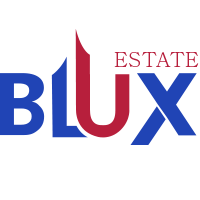Germany Real Estate Investment Guide
Germany stands as one of Europe’s most resilient and secure real estate markets, offering strong fundamentals, legal transparency, and a steady demand for both rental and ownership properties. Whether you’re drawn to the modern skyline of Frankfurt, the cultural depth of Berlin, or the luxury suburbs of Munich, Germany offers investors a balanced mix of growth, income, and long-term value. New developments, renovation projects, and heritage buildings all play a key role in this dynamic landscape.
Key Investment Highlights
- Economic Stability and Growth: As Europe’s largest economy, Germany had a GDP of over $4.5 trillion in 2023 (latest available). Low inflation and strong export-driven growth create a secure environment for long-term real estate investment.
- Real Estate Market Trends: Despite global challenges, Germany’s property prices rose by 6.2% in 2023 in key cities. Rental yields range between 3.5% and 5.5% depending on location and asset type. New-build apartments in Berlin and Frankfurt remain highly sought after.
- Legal and Regulatory Framework: Foreigners can own property in Germany with full freehold rights. There is no restriction on property ownership, but purchasing involves notary and land registry processes. Taxation includes property transfer tax and capital gains under certain conditions.
- Infrastructure and Connectivity: With a world-class transport network, smart city initiatives, and strong regional links via Deutsche Bahn and autobahns, Germany is one of the best-connected countries for residents and investors alike.
- Lifestyle and Amenities: Germany offers excellent public healthcare, education, safety, and quality of life. Its cities regularly rank among the most livable globally, attracting both local and international residents.
Investment Opportunities
- Residential Properties: New-builds in Berlin, townhouses in Düsseldorf, and pre-war apartments in Leipzig offer diverse entry points with varying yield profiles.
- Commercial Properties: Office spaces in Frankfurt, logistics parks near Hamburg, and mixed-use developments in Stuttgart are key sectors for international investors.
- Land Development: Zoning changes and redevelopment of urban brownfields in East Germany provide long-term opportunities.
- Niche Markets: Renovated heritage buildings in Berlin-Mitte, student housing in Heidelberg, and eco-certified homes in Freiburg are popular among niche investors.
Case Studies or Success Stories
An Emirati investor acquired a 4-unit rental building in Munich in 2021 and achieved 5.4% net rental yield, with appreciation of over 18% by 2024. A Qatari family invested in a heritage apartment in Berlin’s Charlottenburg district, which rose in value by 22% in under 3 years after renovation. A Turkish investor secured a residence permit by opening a company tied to their commercial property purchase in Hamburg.
Conclusion
Germany’s real estate market offers rare stability and diverse returns—from sleek new developments to charming historic buildings. With legal protections, modern infrastructure, and EU access, Germany remains a top-tier investment destination for global buyers seeking safety and performance.
Disclaimer
This guide is for informational purposes only and does not constitute legal or financial advice. Always consult a qualified property advisor or legal expert before purchasing.
Why Germany? Key Strengths Table
| Advantage | Details |
|---|---|
| Strong and Stable Economy | GDP over $4.5 trillion; Europe’s largest economy with strong export and tech sectors. |
| High Rental Yields | Yields range from 3.5%–5.5% in major cities like Berlin and Leipzig. |
| Clear Ownership Laws | Full ownership allowed for foreigners, with strong land registry protections. |
| Future-Ready Projects | Smart districts, energy-efficient builds, and urban renewal programs driving growth. |
| Attractive Living Environment | Excellent public services, EU mobility, low crime rates, and strong tenant demand. |
Where Should You Invest?
- Berlin: Strong rental demand, rising values, and opportunities in both new-build and historic properties.
- Frankfurt: Europe’s banking capital with consistent demand for residential and commercial real estate.
- Leipzig: High-yield market for value-driven investors, especially in renovated older properties.
Featured Projects
| Project | Type | Starting Price | Estimated ROI |
|---|---|---|---|
| Frankfurt City Towers | Smart 2BR Apartment | From €420,000 | 5.2% annually |
| Berlin Urban Classic | Heritage Apartment (Fully Renovated) | From €390,000 | 6.1% after renovation |
| Leipzig City Park | Investment Land with Mixed Zoning | From €650,000 | ~35% over 5 years |
Real Success Stories
- A Kuwaiti investor purchased a fully leased building in Cologne with 5.5% net yield and no vacancies for two years.
- An Indian family secured residency via the entrepreneur visa after acquiring and renovating commercial property in Berlin-Kreuzberg.
Why Invest Now?
Germany’s real estate market remains undervalued compared to other Western European countries. With rising demand, limited supply in urban zones, and EU economic support, timing is critical for maximizing entry points and long-term returns.
Take Action Now
- Book a free consultation with a certified local expert.
- Access exclusive property offers for foreign investors.
- Download a detailed PDF guide for each city with pricing, rules, and incentives.
Ownership & Legal Information
| Fee/Requirement | Details |
|---|---|
| Foreign Ownership | Allowed 100% with full land registry rights |
| Property Transfer Tax | 3.5%–6.5% depending on state |
| Capital Gains Tax | Exempt after 10 years of ownership; otherwise up to 25% |
| Annual Property Tax | Varies by location, usually 0.3%–1% of property value |
| Residency Options | No direct property-based residency, but company-based residency possible |
Country Comparison (Optional Section)
- ROI: Germany (4.5%) vs. Türkiye (6.5%) vs. UAE (5.8%)
- Ownership Rights: Full freehold in all three, but Germany offers the highest legal protection
- Minimum Investment: No minimum threshold in Germany; based on market prices
- Residency: Germany requires business activity or work permit; no property route available alone




